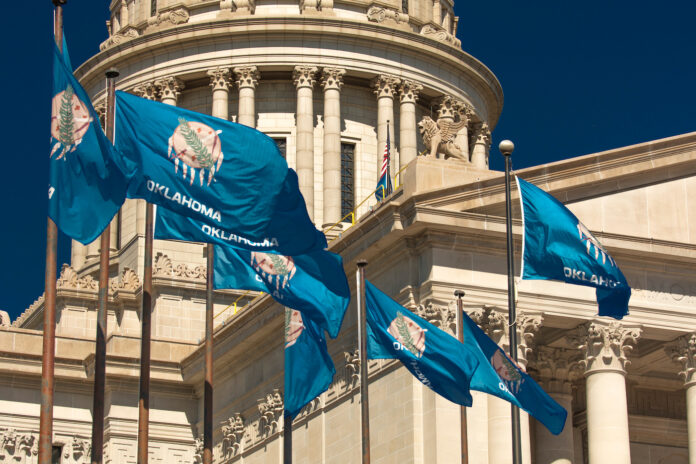OKLAHOMA CITY – Voters in Oklahoma rejected a ballot initiative to legalize cannabis for adult use during a special election Tuesday by a margin of 62 percent, according to the Associated Press. More than 566,000 voters participated in the special election.
Opposition was strong in nearly the entire state, with the exception of Oklahoma City and Tulsa, highlighting the divide between large cities and the rural population.
Oklahoma Question 820, which was the only ballot proposal for most voters in the state, would have legalized cannabis for adults 21 or older with a 15-percent excise tax on recreational sales on top of applicable sales taxes to support the implementation of the new law and fund other state initiatives.
Thirty percent of the surplus tax revenue from recreational sales would have been used to support public school programs to address substance abuse and student retention, with 30 percent going to the general fund, 20 percent going to drug addiction treatment programs, 10 percent to the courts, and 10 percent for local governments.
If passed, adults would have been able to possess up to one ounce of cannabis and grow up to six mature plants and six seedlings.
“This wasn’t about legalizing marijuana; this was about keeping Oklahomans out of the criminal justice system,” said Ryan Kiesel, a former state representative and Yes on 820 advisor. According to Oklahomans for Criminal Justice Reform, more than 4,500 people are arrested annually for cannabis possession in the state.
Advocates for Yes on 820 submitted signatures to put cannabis legalization on the November 2022 ballot. In early July, the Oklahomans for Sensible Marijuana Laws campaign announced it had submitted 164,000 signatures to the secretary of state’s office well before the August deadline, far outpacing the 94,911 signatures required to qualify for the proposed statutory amendment.
However, the initiative served as a guinea pig for the state’s new verification partner, Western Petition Systems LLC, which was hired to verify signatures and confirm voter registration under a law passed in 2020. The new process requires cross-referencing multiple data points, including name, address, and zip code with voter registration roles. It ultimately took seven weeks to verify the signatures.
“The text generated by the Western Petition Systems computer program, based on its scans of the signature pages, was nearly always wildly inaccurate,” said Michelle Tilley, campaign director for Yes on 820, in an August declaration filed with the Oklahoma Supreme Court. “This inaccuracy required individuals to laboriously look at physical signature sheets and enter nearly all names, addresses, birth dates, collection dates, and other data by hand into the computer program.”
Given the delays, advocates petitioned the Oklahoma Supreme Court to approve the ballot title and ensure the proposal made the November 2022 ballot. In September, the court unanimously denied the request while acknowledging the unusually slow counting process, and the ballot measure eventually was approved by the governor for a special election in 2023.
“Oklahoma is a law-and-order state,” Republican Gov. Kevin Stitt said in a statement after Tuesday’s vote. “I remain committed to protecting Oklahomans, and my administration will continue to hold bad actors accountable and crack down on illegal marijuana operations in our state.”
Nearly 400,000 patients, or approximately 10 percent of the state’s adult population, are currently registered under Oklahoma’s medical marijuana program with 12,000 licensed businesses. In 2018, Oklahoma voters backed the medical marijuana initiative by a double-digit margin. Any condition may qualify a patient for the program if a doctor determines medical cannabis would be beneficial.
“This is just a matter of when,” Tilley said. “Change is coming. We know that 80 percent of people under the age of 40 believe legalization needs to happen. It’s just a matter of when. And so we all have to stay banded together and keep fighting this fight and keep pushing forward.”











[…] on all new licenses in August 2022, and the long-planned ballot initiative to add adult use was defeated in March 2023 by a vote of nearly two to one. Owners are having trouble selling property, even at a loss, and […]
[…] Medical Marijuana is Good Enough for Most Oklahoma Voters […]